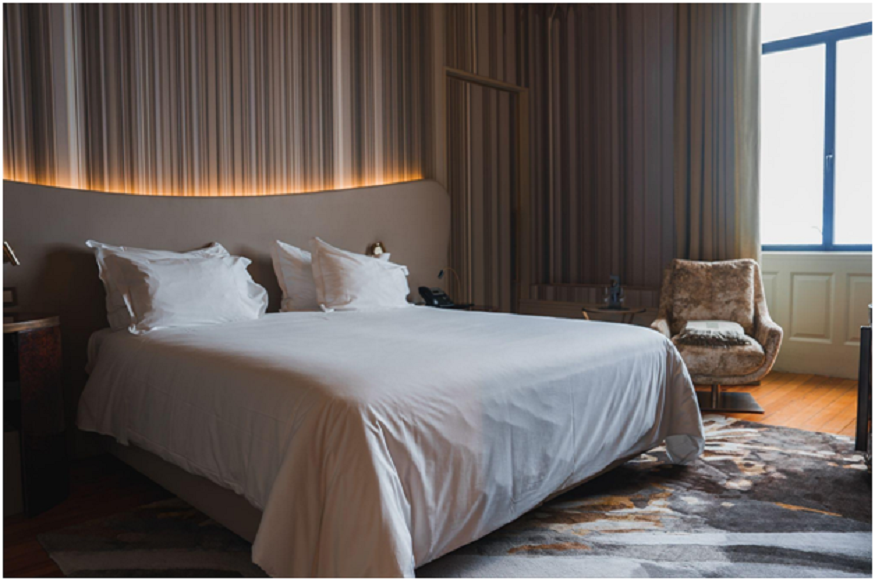Investing in a hotel room has become an attractive option for many looking to diversify their portfolios and capitalize on the hospitality market. This type of investment allows you to buy a hotel room within a managed property, typically located in a popular tourist destination or business hub.
In this blog, we’ll explore the key benefits, risks, and considerations of hotel room investment, as well as how it compares to other real estate options.
What is Hotel Room Investment?
Hotel room investment involves purchasing a unit within a hotel property that is managed by a professional hotel operator. As an investor, you own the room and receive rental income from guests who stay in the property. The hotel management handles day-to-day operations, including guest bookings, maintenance, and marketing.
There are two main types of hotel room investment:
- Full Ownership: You own the entire hotel room and collect all rental income generated by the property.
- Fractional Ownership: You purchase a share in the room, which gives you access to a portion of the rental income and usage rights.
Why Consider Owning a Hotel Room?
1. Steady Rental Income
One of the main draws of investing in a hotel room is the potential for consistent rental income. With high occupancy rates in prime locations, you can benefit from regular returns. The property is typically rented out on a nightly basis, making it a viable source of income, especially in tourist hotspots.
2. Hands-Off Investment
Hotel room investment is relatively passive compared to other real estate ventures. The hotel management handles operations, including maintenance, guest services, and marketing. This makes it an attractive option for those who want a less hands-on approach to property investment.
3. Access to Hotel Amenities
Investors often have access to the hotel’s amenities, such as pools, gyms, and restaurants. These perks can add value to your investment, particularly if the hotel is located in a desirable area. You may also be entitled to stay in your room for a certain number of nights each year.
4. Diversification
By adding this asset class, you can reduce exposure to other types of property, such as residential or office spaces. In popular areas, the hospitality sector can provide stable returns that are less correlated to the residential real estate market.
5. Professional Management
Hotels are often managed by experienced operators who are skilled at running hospitality businesses. This professional management can reduce the risks of ownership, ensuring that your property is well-maintained and marketed effectively to guests.
Risks of Owning a Hotel Room Investment
1. Variable Rental Income
While hotel rooms can generate income, the rental returns are not guaranteed. Factors like seasonality, market demand, and global events can impact occupancy rates. Economic downturns or changes in travel trends can also reduce your rental income.
2. High Initial Costs
The upfront costs for buying a hotel room can be significant, particularly in high-demand areas. Beyond the purchase price, you may incur additional fees, such as management fees, taxes, and ongoing maintenance costs. Make sure to assess the financial feasibility before committing.
3. Limited Control
As a hotel room owner, your control over the property is limited. . While this can be an advantage for those seeking a passive investment, it also means you have little say in day-to-day operations.
4. Liquidity Issues
Real estate, in general, is not a liquid asset, and hotel room investments are no exception. If you need to sell your property quickly, you may face challenges. The resale market for hotel rooms can be less liquid than for other types of real estate, especially if demand slows in the area.
5. Ownership and Usage Restrictions
Some hotel room investments have restrictions on personal use. You may only be able to stay in the room for a limited time each year, or you may face additional fees for using the property. It’s important to understand these restrictions before committing to an investment.
How to Choose the Right Hotel Room Investment
When considering hotel room investment, there are several key factors to keep in mind:
1. Location
Location is one of the most important factors when investing in a hotel room. A room in a prime area—such as a popular tourist destination or business hub—will typically have higher demand and better rental income potential.
2. Hotel Brand and Management
The reputation of the hotel brand and its management team is crucial. A well-known and experienced hotel operator can increase occupancy rates and ensure a steady stream of rental income. Look for operators with a track record of success in the hospitality industry.
3. Market Demand
Before investing, research the local market to assess demand for hotel rooms. Look at factors like local tourism trends, seasonal fluctuations, and overall economic health in the area. A thriving tourism industry is often a good indicator of long-term rental income potential.
4. Financial Performance
Make sure to factor in all associated costs to ensure the investment is profitable.
Final Thoughts on Hotel Room Investment
Owning a hotel room can provide consistent rental income, diversification, and exposure to the growing hospitality sector. However, it comes with risks, such as fluctuating income, high upfront costs, and limited control over operations.
If you’re considering investing in a hotel room, make sure to conduct thorough research, evaluate the financial viability, and seek professional advice. With the right strategy and management, owning a hotel room can be a rewarding addition to your portfolio.
Contact GPFG (Geonet Property and Finance Group) today for expert guidance and support in exploring hotel room investment opportunities.





